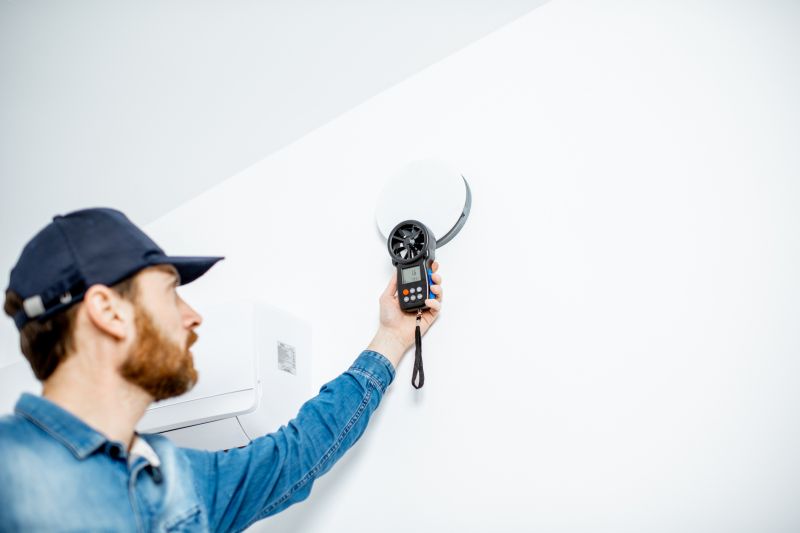Top-Rated Particulate Testing Equipment For Professionals
Browse a selection of professional-grade particulate testing devices designed for laboratories, manufacturing, and environmental analysis.
 Products for particulate testing encompass a wide range of tools and devices designed to measure, analyze, and monitor airborne or surface-bound particulate matter. These products are essential in various industries including manufacturing, healthcare, environmental monitoring, and quality control. They help users identify contamination levels, assess air quality, and ensure compliance with safety standards. The diversity of available testing equipment allows for tailored solutions suited to specific testing environments and particulate types.
Products for particulate testing encompass a wide range of tools and devices designed to measure, analyze, and monitor airborne or surface-bound particulate matter. These products are essential in various industries including manufacturing, healthcare, environmental monitoring, and quality control. They help users identify contamination levels, assess air quality, and ensure compliance with safety standards. The diversity of available testing equipment allows for tailored solutions suited to specific testing environments and particulate types.
Top Overall Option
Multi-Functional Particulate Sampling Device
A versatile sampling device capable of collecting airborne and surface particles with high accuracy, featuring adjustable flow rates and digital data output for comprehensive analysis. Its adaptable design makes it suitable for various testing environments, from industrial facilities to laboratories.
Types of Products For Particulate Testings
Air Sampling Pumps
Devices that draw air through filters to collect particulate matter for analysis, often portable and adjustable for different flow rates.
Filter Cassettes
Pre-assembled units used to capture airborne particles for laboratory evaluation, compatible with various filter media.
Surface Swab Kits
Tools designed for collecting surface particles, useful in contamination assessments and cleanliness testing.
Laser Particle Counters
Electronic devices that count and size particles in real-time using laser technology, suitable for air quality monitoring.
Optical Particle Counters
Instruments that use optical sensors to detect and quantify particles in the air, often portable and easy to operate.
Gravimetric Samplers
Devices that collect particles on filters for subsequent weighing and analysis, providing quantitative data.
Portable Particle Analyzers
Handheld units that provide immediate particle counts and size distribution data in the field.
HEPA Filter Testing Kits
Tools for assessing the efficiency of HEPA filters in trapping particulate matter, often used in cleanroom environments.
Aerosol Generators
Devices that produce controlled aerosols for testing filter efficiency and containment systems.
Particle Size Analyzers
Equipment that determines the size distribution of particles in a sample, critical for detailed analysis.
Air Quality Monitors
Comprehensive devices that measure multiple air parameters including particulate concentration, often with data logging features.
Environmental Dust Monitors
Specialized tools for assessing dust levels in industrial or construction environments.
Particle Collection Filters
Filters used in sampling devices to capture particles for subsequent laboratory analysis.
Bioaerosol Samplers
Instruments designed to collect biological particles like bacteria or fungi from air samples.
Surface Contamination Test Kits
Sets used to detect and quantify particulate contamination on surfaces, often used in cleanroom validation.
Automated Sampling Systems
Integrated systems that automatically collect and analyze particulate samples over time, suitable for continuous monitoring.
Popular Choices
Compact devices favored for their ease of use in field environments, providing real-time particle data.
Convenient kits for quick surface contamination assessments, widely used in healthcare and cleanroom settings.
Popular for their accuracy and real-time measurement capabilities in air quality monitoring.
Devices used to evaluate filter performance, especially in HVAC and cleanroom applications.
Commonly used in laboratory testing to simulate airborne particles for filter and containment testing.
Widely used for quantitative analysis of particulate matter collected on filters.
Popular for comprehensive environmental assessments, measuring multiple parameters including particulates.
In demand for detecting biological contaminants in air samples, especially in healthcare environments.
Chosen for detailed analysis of particle size distributions in research and industrial testing.
Frequently used to verify filter efficiency in cleanroom and laboratory settings.
Popular in construction and industrial sites for dust level assessment.
Commonly used in pharmaceutical and food industries to ensure surface cleanliness.
Many particulate testing devices utilize advanced sampling techniques, such as air sampling pumps, filter cassettes, or surface swabs, to collect samples for analysis. Some products incorporate digital readouts or connectivity options for real-time data monitoring, while others are designed for laboratory analysis with high precision. Proper selection of testing tools depends on factors like particle size range, testing environment, and required sensitivity. Accurate testing results can inform decision-making processes, improve safety protocols, and help maintain product or environmental integrity.
In addition to handheld and portable options, there are also stationary testing systems designed for continuous monitoring in industrial settings. These systems often feature integrated sensors and data logging capabilities, enabling ongoing assessment without constant manual intervention. As particulate testing technology continues to evolve, newer products incorporate features like automated sampling, wireless data transmission, and user-friendly interfaces, making testing more efficient and accessible. Whether for routine inspections or detailed analysis, choosing the right particulate testing product is vital for obtaining reliable and actionable data.
Key Buying Considerations
- Particle size range and sensitivity needed for your testing requirements.
- Portability versus stationary setup based on your testing environment.
- Sampling method compatibility with the type of particulate matter you aim to measure.
- Data output options including digital displays, data logging, or wireless connectivity.
- Ease of use and calibration requirements for consistent results.
- Durability and build quality suitable for your testing conditions.
- Battery life and power options for portable devices.
- Compatibility with existing laboratory or monitoring systems.
- Regulatory compliance and certification relevant to your industry.
- Cost considerations balanced with required features and accuracy.
- Availability of accessories or replacement parts.
- Manufacturer support and warranty coverage.
- Sample collection and analysis timeframes.
- Size and weight for ease of transport and handling.
- Environmental resistance features such as dust or water resistance.
